Biographies are listed in alphabetical order by researcher name.
Dr Sheila Alexander, University of Pittsburgh, US
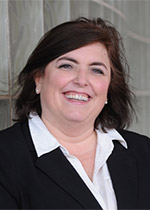
Sheila Alexander is an accomplished nurse scientist in the field of genetic, genomic and other ‘omic’ markers of brain response to acute injury and illness. Her earliest work showed that patients with the Apolipoprotein E 4 allele had slower recovery from severe Traumatic Brain Injury. She has advanced the understanding of the brain’s response to aneurysmal subarachnoid hemorrhage and individualized risk for secondary injury and long-term outcomes. Her work in a general ICU population was the first to show sustained inflammatory markers as a biomarker of delirium. Her current research is focused on 1) genetic and epigenetic modifiers of inflammation contributing to ICU delirium and 2) developing a genetic risk panel and interventions for subarachnoid haemorrhage patients.
Dr Spiros Blackburn, University of Texas in Houston, US
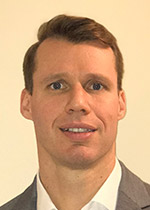
Spiros Blackburn is a neurosurgeon and Associate Professor in the Department of Neurosurgery at the University of Texas Houston Health Science Center. His research is focused on inflammation and coagulation after aneurysmal subarachnoid hemorrhage and he maintains a research lab funded by an NIH K23 grant. He participates in several clinical studies for brain aneurysms, including as a lead investigator in the PILLAR study (CSF filtration after aneurysmal subarachnoid hemorrhage). As a clinician, his practice includes the treatment of brain aneurysms and all vascular malformations; he has completed neurosurgical vascular and endovascular fellowships. He is the Associate Program Director for the neurosurgical residency training program at University of Texas Houston.
Dr Mark Borsody, NeuroSpring, US

Mark Borsody is a vascular neurologist and neuroscientist by training. In 2006, he entered the pharmaceutical industry as the Medical Director for major stroke programs including AstraZeneca’s NXY-059 program, Lundbeck’s desmoteplase program, and Genentech’s Activase / tPA franchise. In 2010, he founded Nervive Inc, which is developing the VitalFlow facial nerve stimulator. Under his leadership as start-up CEO, Nervive obtained $8.1M in non-dilutive funding, completed key preclinical studies, and built a clinical prototype VitalFlow device that is currently being tested on stroke patients. He recently began work on a new company – Faucetworks LLC – which is developing an artificial intelligence diagnostic device for neurological emergencies.
Mr Diederik Bulters, University Hospital Southampton NHS Trust, UK

Diederik Bulters is a Consultant Neurosurgeon and Honorary Senior Clinical Lecturer with an interest in neurovascular surgery. His research team including three research fellows, five research nurses and three clinical trials assistants have extensive experience in subarachnoid haemorrhage, intracranial haemorrhage and brain injury research. His most recent trial is of a novel compound that activates Nrf-2, upregulating expression of a wide range of anti-oxidative, anti-inflammatory, cytoprotective and haemoglobin scavenging proteins like haptoglobin. He has held grants from the EPSRC, European Union, Innovate UK, National Institute for Health Research, Royal College of Surgeons of Edinburgh, Wessex Medical Research and is Associate Editor of the British Journal of Neurosurgery and the President of the British Neuro Vascular Group.
Professor Sylvain Doré, University of Florida in Gainesville, US
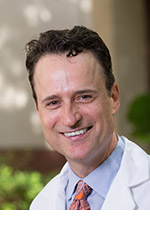
Sylvain Doré is Professor at the University of Florida (Anesthesiology, Neurology, Psychiatry, Pharmaceutics, Neuroscience). He graduated from the University of Montreal, then McGill University and then Johns Hopkins. The goal of his team’s effort is to discover new effective mechanisms limiting neuronal dysfunction in ischemic and hemorrhagic stroke , traumatic brain injury, aging, Alzheimer, and various other neurological disorders. The overall aim is to slow down disease progression, and ultimately stop it. Clinical research has highlighted the importance of haptoglobin. Of specific interest to the team are the unique properties of hemoglobin-haptoglobin, heme-hemopexin, iron-ferritin and their scavenging receptors. These are studied in models of brain disease, aiming to develop new tools, accelerate progress toward precision medicine, and improve patient care and health.
Mr Ben Gaastra, University of Southampton, UK
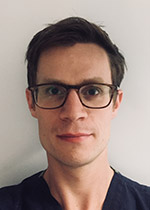
Ben Gaastra graduated from The University of Cambridge in 2013 and became a member of The Royal College of Surgeons in 2016. Mr Gaastra then entered the Academic Foundation Programme in neurosciences (King’s College Hospital, London) during which he trained under Professor Al-Chalabi in bioinformatic and genetic analysis. Mr Gaastra commenced neurosurgical training at University Hospital Southampton in 2015. He has been awarded research fellowships from the Royal College of Surgeons, Society of British Neurological Surgeons, Barrow Foundation, Guarantors of Brain and Institute for Life Sciences. His interest is outcome after aneurysmal subarachnoid haemorrhage and has published on outcome prediction, cognitive and auditory outcomes and the genetics of outcome. As part of the consortium Mr Gaastra has published a review of haemoglobin scavenging in the brain and has led an individual patient level data analysis of haptoglobin genotype and outcome after subarachnoid haemorrhage; he is currently leading the GWAS of outcome after SAH.
Professor Ian Galea, University of Southampton, UK
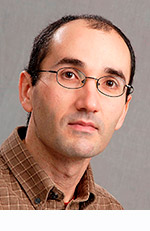
Ian Galea is a Consultant Neurologist and Professor in Clinical & Experimental Neurology in Southampton. He leads a multidisciplinary group of investigators studying inflammatory and haemorrhagic brain conditions, funded by grants from Research Councils, charities and pharmaceutical companies in the UK. Seminal contributions to the field include studies of the CD163-haptoglobin and CD91-haemopexin scavenging systems in the human brain, and development of a subarachnoid haemorrhage specific outcome tool. Expertise spans clinical and preclinical domains, including clinical outcome prediction, assessment, neuro- imaging, cell culture, immunochemistry, molecular techniques and preclinical modelling. A main focus is to turn basic science discoveries into clinically applicable tools and therapies.
Mr James Galea, University of Manchester, UK
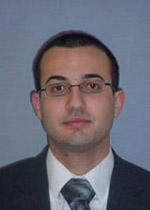
James Galea is lead neurovascular surgeon in Cardiff and senior lecturer at the University of Manchester. He has trained in general surgery and subsequently neurosurgery in Manchester. Following specialization in neurovascular surgery, he was appointed as consulting surgeon in neurosurgery in Dundee before moving to Cardiff. Dr Galea has been actively researching the causes of brain degeneration following brain haemorrhage. During his PhD, he worked with Dame Professor Nancy Rothwell on brain inflammation, in particular, the actions and pharmacokinetics of interleukin 1 receptor antagonist. He is a founding member of the UK SAH database and a lead investigator of a phase III trial of interleukin-1 antagonism in subarachnoid haemorrhage.
Professor Koji Iihara, Kyushu University, Japan
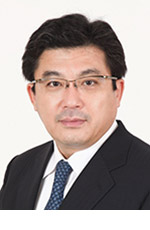
Koji Iihara is Professor and Chairman, Department of Neurosurgery, Kyushu University Graduate School of Medical Sciences. He graduated from Kyoto University Faculty of Medicine in 1987. He obtained his PhD in Neurosurgery at Kyoto University Graduate School of Medicine in 1994. He completed a research and clinical fellowship (Skull base and Cerebrovascular Surgery) at the University of Toronto with Profs. Michael Tymianski, Christopher Wallace and Fred Gentili. In 2000, he joined the Department of Neurosurgery, National Cerebral and Cardiovascular Center, and became Chairman in 2009. He is vice director of the National Cerebral and Cardiovascular Center Hospital (2017 onwards). He founded the largest nationwide stroke database in Japan (J-ASPECT Study), funded by the Japanese government, and Agency for Medical Research and Development.
Professor Paul Nyquist, Johns Hopkins University, Baltimore, US
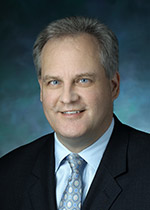
Paul Nyquist is a professor who works in the Neurocritical Unit and is a member of the Neurocritical care division as well as the cerebrovascular division at Johns Hopkins School of Medicine in Baltimore, Maryland. He is a professor of Neurology, Anesthesiology & Critical Care Medicine, Neurosurgery, and General Internal Medicine at the Johns Hopkins University School of Medicine. Dr Nyquist is a founding member of the HATCH consortium. He has completed key clinical research identifying a relationship between Haptoglobin subtype and the onset of cerebral salt wasting in aneurysmal subarachnoid hemorrhage. He is a recognized translational cerebrovascular researcher focused on systems biology, the genomics of ischemic white matter disease, and brain injury.
Professor Jin Pyeong Jeon, Hallym University College of Medicine, South Korea

Jin Pyeong Jeon is an assistant professor in the Department of Neurosurgery, Korea College of Medicine, and research professor in the Institute of New Frontier Research, both in Hallym University, Chuncheon, South Korea. He has trained in cerebrovascular neurosurgery, endovascular intervention and neuro-intensive care. He performs clinical and laboratory studies in stroke, particularly acute ischemic stroke and subarachnoid hemorrhage. He has published research on genetic determinants of aneurysm formation and the role of haptoglobin genotype on clinical outcome after subarachnoid haemorrhage. In addition, he is actively working on employing artificial intelligence and oriental medicine in the diagnosis and treatment of stroke.
Dr Dianxu Ren, University of Pittsburgh, US
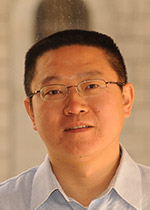
Dianxu Ren is an Associate Professor and Associate Director for Statistical Support Services for Center for Research & Evaluation (CRE) in the School of Nursing at University of Pittsburgh. Dr Ren has a secondary appointment as Associate Professor in the Department of Biostatistics, Graduate School of Public Health (GSPH) at University of Pittsburgh. His area of expertise is in biostatistics including longitudinal data modeling, meta-analysis, and novel statistical methods application in the health sciences. Dr Ren has past and present collaborations on more than 20 research grants as a Co-investigator/Biostatistician. Most of these grants were funded by the NIH including 11 R01, 2 R21, and 1 R03. He is also a training faculty on two NIH institutional training (T32) grants in the School of Nursing.
Dr William Tapper, University of Southampton, UK

William Tapper is an Associate Professor in Genomic Informatics at the University of Southampton. Dr Tapper was appointed as lecturer in 2014 and now leads the bioinformatics group which focuses on identifying and understanding the genetic basis of disease using computational techniques and translating these findings into clinical practice. Research highlights include GWAS of breast cancer survival (discovering germline variants increasing risk of disease progression) and myeloproliferative neoplasms (identifying loci associated with disease risk and disease subtypes). The group analysed NGS data to determine BRCA mutation status in the largest young-onset breast cancer prospective cohort study, showing that survival outcome was similar with and without a BRCA mutation.